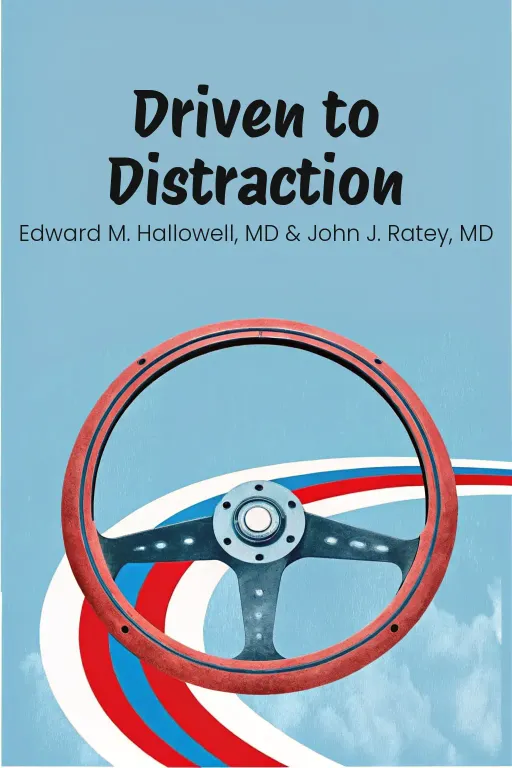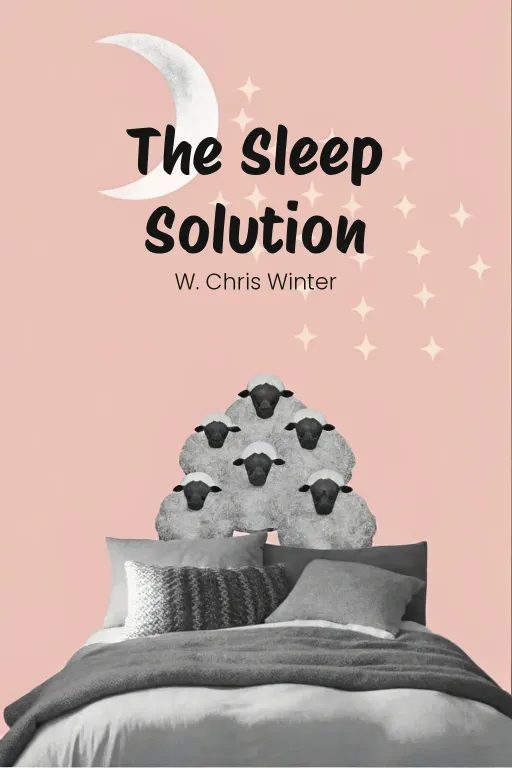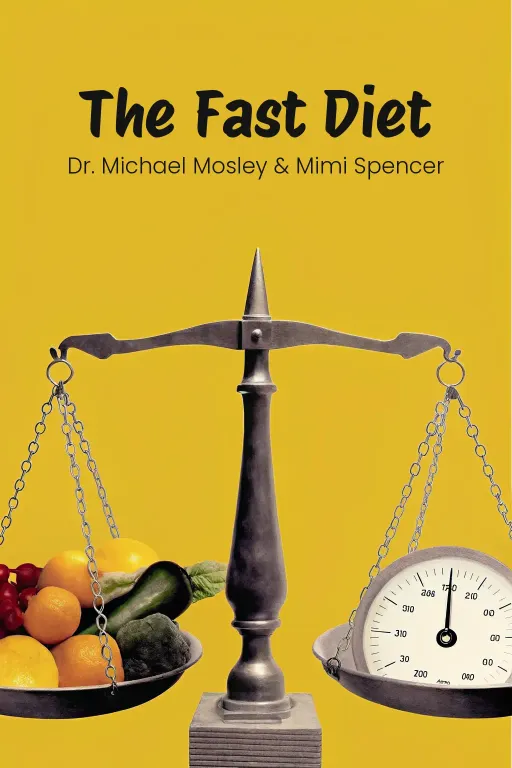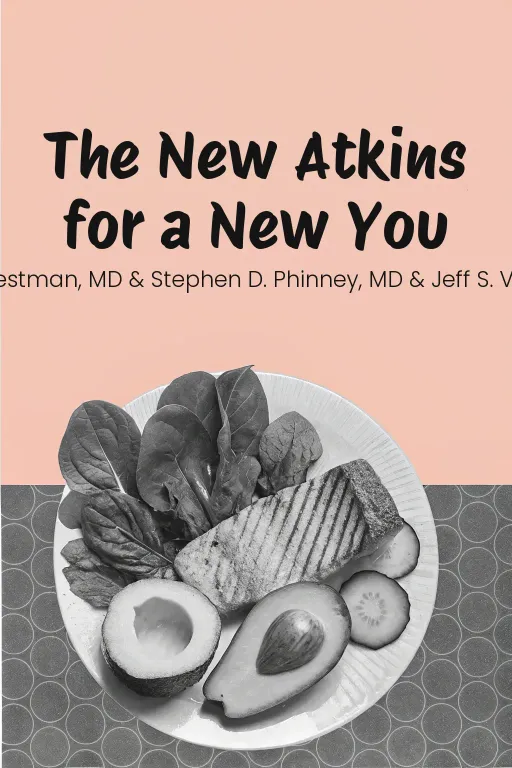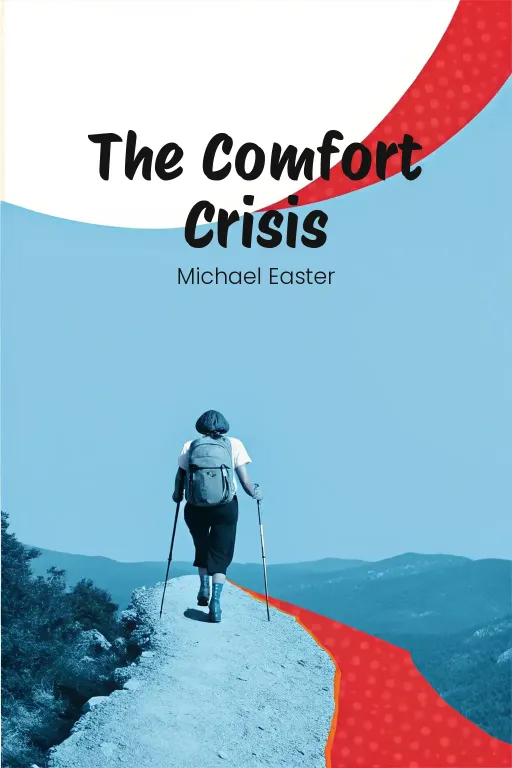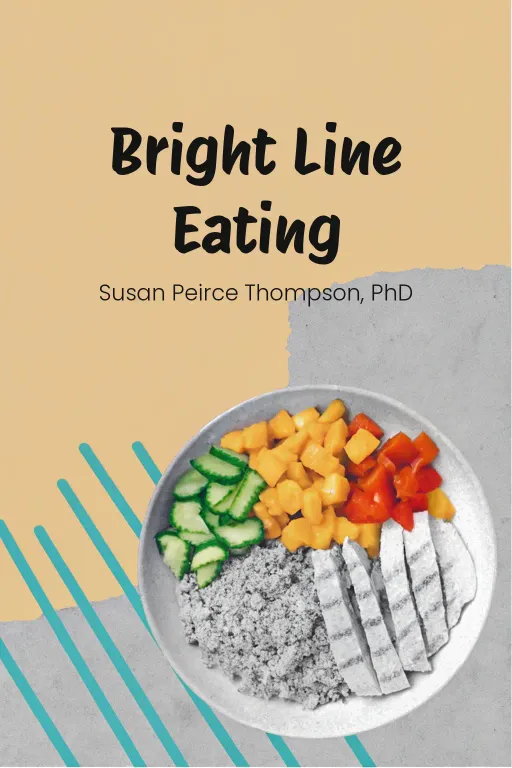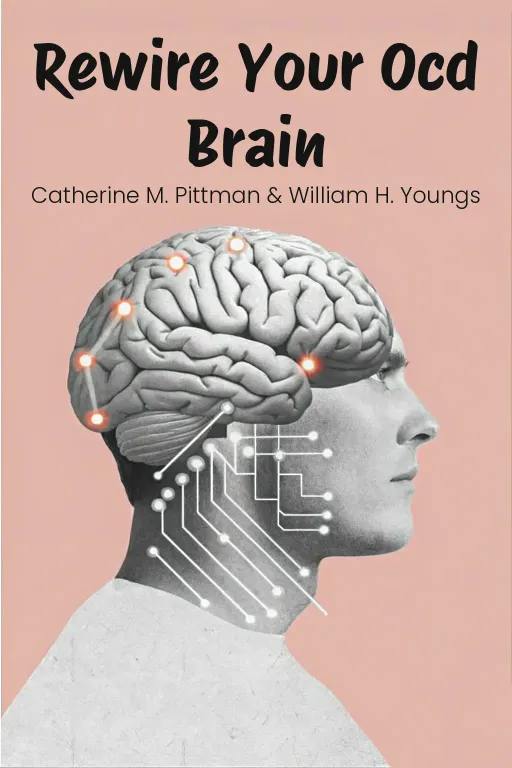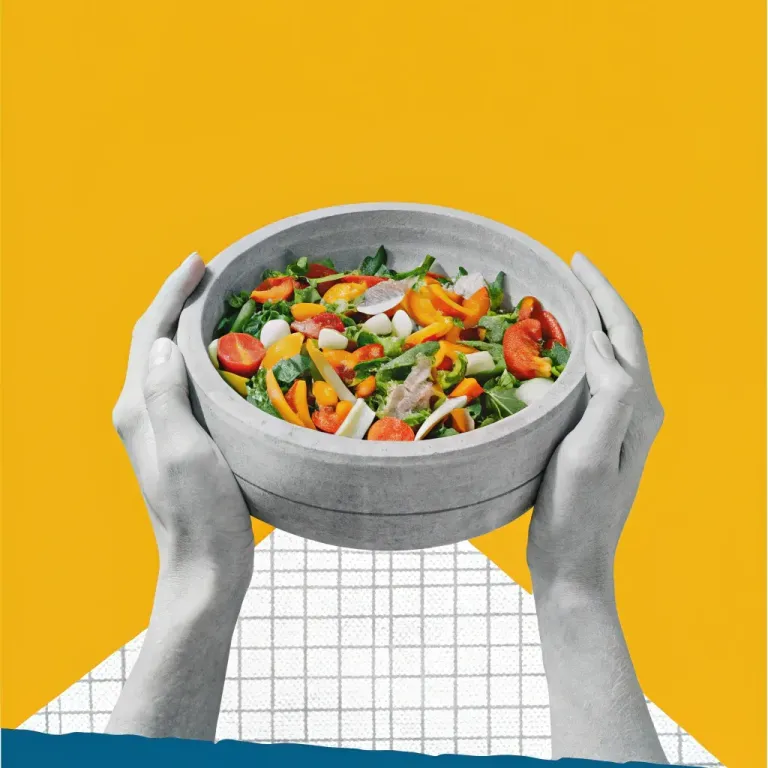
Escape Diet Prison: Food Freedom Found
Podcast by Beta You with Alex and Michelle
A Revolutionary Anti-Diet Approach
Introduction
Part 1
Alex: Hey everyone, and welcome! Today we’re diving into “Intuitive Eating” by Evelyn Tribole and Elyse Resch. It's one of the most talked-about approaches to food and health. Michelle: Oh, here we go... Alex: If you've ever felt trapped by diets or just find that food is constantly on your mind in a negative way, this episode is definitely for you. Michelle: So, Alex, is this one of those books that tells me to ditch the calorie counting and just, like, embrace my inner pizza monster? Alex: <Laughs> You’re not totally off, Michelle, but it really goes much deeper than that. “Intuitive Eating” is about rejecting restrictive diets and really reconnecting with your body’s natural signals—your hunger, your fullness, and yeah okay, even those cravings. The idea is to get off that dieting rollercoaster and start seeing food as something for nourishment, for joy, and even for self-compassion. Michelle: Hmm, a rebellion against, what, the multi-billion dollar diet industry? Sounds…optimistic. Alex: Totally. In the book, they lay out ten principles that address everything from feeling guilty about food to emotional eating, while also tackling the root issues of diet culture. They get into the psychology behind eating habits, offer solid scientific backing, and promote body acceptance as opposed to chasing unrealistic societal images. Michelle: Okay, you've piqued my interest. So, what's on the menu for today? Alex: We’re going to explore five key areas. First, how to break free from the hold of "diet culture". Second, we'll get into how to actually trust your body’s natural hunger and fullness cues. Third, demolishing any guilt you might have about food and making peace with all foods – yes, even pizza! Fourth, exploring the emotional and social aspects of eating since food is not just fuel, but also connection. And finally, how joyful movement and a holistic view of health can totally transform how you see wellness. Michelle: So, we’re rewriting the food rulebook, but without the rules this time. Alright, let's see if this can win over a skeptic like myself.
Rejecting Diet Culture
Part 2
Alex: Okay, Michelle, let's dive right into the first principle: “Reject the Diet Mentality”. This really sets the stage for everything else. The core argument here is that before we can even think about having a healthy relationship with food or truly listening to our bodies, we've got to confront and unpack all the toxic ideas about dieting that have been drilled into us. Michelle: Right, so, “diet culture” – what is that, exactly? It feels like a term that's suddenly everywhere. Alex: That's a great question. Diet culture is basically a belief system that puts being thin on a pedestal, equating it with being healthy, beautiful, and worthy. It's what fuels that multi-billion-dollar diet industry, pushing those weight-loss plans, detox teas, and calorie-counting apps, all while reinforcing the idea that if you can't lose weight, it’s a personal failure. It's so insidious because it's not just advertising; it's woven into social norms, media, and even medical advice. Michelle: So, diet culture is that voice in your head whispering, "You'd be happier, more successful, more lovable if you just dropped a few pounds." Charming. And I'm guessing it's also why people shell out tons of money for that magic juice cleanse that ultimately does nothing. Alex: Precisely! And here's the kicker – dieting typically doesn't work. Research suggests that the vast majority of diets fail long-term, and people often regain the weight, or even gain more. But, the narrative is that when diets fail, well, we failed. We didn't try hard enough or weren't disciplined enough. That’s how we get stuck in this endless loop. Michelle: So, people basically starve themselves trying to be healthy, it backfires, and then they're consumed by guilt for failing. Repeat ad nauseam. It’s like a trap designed to be inescapable. Alex: Absolutely, and it has real consequences, not just physically, but mentally. The authors use the term “diet trauma,” describing how years of restricting food and feeling like you’ve failed leads to an ingrained fear of food. For example, Cyndi, who’s mentioned in the book, felt overwhelming guilt over eating a single slice of toast with her boiled egg! That guilt then spiraled into skipping meals, which led to a binge, perpetuating the cycle. The point is, her body wasn’t the enemy, but she’d been conditioned to think it was. Michelle: Hang on, is that “Food Police” concept real? I mean, it’s that voice constantly judging your food choices, isn't it? Saying, "That bread is evil, you're screwing up, step away." Alex: Exactly! The Food Police are a symbolic representation of those internalized rules we absorb from diet culture. "No carbs after 8 p.m.," "Desserts are only for cheat days," "Salad equals good, fries equal bad." They turn eating into a constant battle of morality instead of a source of nourishment or pleasure. Michelle: That explains why people are so hard on themselves about food. It’s not even about the food itself; it’s about shame and control. What’s the end game here? Alex: Precisely. So, the authors emphasize rejecting the diet mentality as the first step. You've got to call a truce with food and silence those Food Police. But it's not just about saying, "I'm done dieting." It's about really looking at those societal messages – media, health professionals, even friends and family – that push dieting in the first place. Michelle: Easier said than done, surely? I mean, society hammers these ideas home constantly. So how do you block all that out when you're bombarded with Instagram posts from slim influencers touting “healthy” smoothies, or magazine covers screaming, "Lose 10 pounds in time for summer!"? Alex: You probably can't totally block it out, but you can start to reframe it. For starters, the authors suggest you remember that the diet industry profits from your dissatisfaction. Take a moment and think, "Who benefits from me feeling bad about my body?" When you realize it's a multi-billion-dollar industry, not your actual health or happiness, it starts to weaken the hold those messages have on you. Michelle: Interesting. So, reframing is like flipping the script – instead of you being the problem, the system is. But how do people actually begin to reject these beliefs in their daily lives? What's the initial, practical step? Alex: The first step, according to the authors, is ending your allegiance to dieting. That means ditching diet apps, refusing “quick fixes,” and challenging the beliefs you've internalized about food and weight. For example, stop linking cookies with guilt or salads with virtue. And crucially, practice self-compassion. Remind yourself that it's okay to just enjoy food, and that your worth isn't tied to your jean size. Michelle: Okay, so how does self-compassion actually look? Because I can see listeners thinking, "Right, I'll try, but what do I do when that little voice tells me to skip dinner to compensate for lunch?" Alex: It's about rewriting that inner dialogue. Instead of punishing yourself for eating “too much,” you shift to thinking, “My body needed that food, and it's perfectly okay to respond to hunger." The kinder you are to yourself, the more you'll build trust in your body. Michelle: Alright, I'm tracking. But let's tackle another real hurdle: society's obsession with thinness. Even if you personally reject dieting, how do you navigate a world that still idolizes it? How do you cope in situations where people expect you to be thinner or fitter? Alex: That's definitely a tougher layer, and the authors don't shy away from it. They talk about “body liberation,” which is about fighting not just for personal change, but for social change, too. That means calling out fatphobia, weight stigma, and the unrealistic ideals that the media constantly pushes. Look at people like Shaina, who you mentioned earlier, she broke out of that by prioritizing authenticity. When she stopped dieting and went to her high school reunion just as she was, she realized that the pressure she'd been putting on herself wasn't coming from other people's judgments, but from her own internalized beliefs. Michelle: So, Shaina's story is like the reverse glow-up – no dramatic makeover needed, just showing up as her authentic self and letting that be enough. Alex: Exactly. And her experience shows that rejecting diet culture does more than just liberate your relationship with food. It's about trusting that you're worthy as you are right now, not as some “ideal” future version of yourself. By letting go of the diet mentality, Shaina reclaimed her joy, and that's what this principle is all about: freedom, not perfection.
Honoring Hunger and Fullness
Part 3
Alex: So, having explored the problems with diet culture, we move on to how to build a healthier relationship with food. A key part of this is really tuning into what your body is telling you. And that brings us to honoring hunger and fullness. This isn't just about rejecting diet plans; it's about creating a practical way to reconnect with your own wisdom. Essentially, it's trusting that your body knows when it’s time to eat and when it’s had enough. Michelle: Okay, so basically, we are throwing all the rules out the window. No more rules telling you what to eat and when. You're saying we should trust our instincts that have been buried deep down, the one between a craving and a desire for a third helping. Is that right? Alex: Exactly! Honoring hunger and fullness is about trusting your body’s built-in signals. Honestly, they're way more reliable than calorie counts or diet plans. Hunger isn't the enemy that diet culture makes it out to be. It’s actually a fundamental biological and emotional signal. Ignoring it can throw everything out of whack, leading to those cycles of overeating or feeling deprived. Michelle: Okay, but hunger isn’t always straightforward. Some days you’re just incredibly “hangry” and could eat anything, other times you're just eating out of boredom. So, how do you know which signals to actually listen to? Alex: Good point. Not all hunger signals are the same. The first step, according to the authors, is awareness—tuning into the physical and emotional sensations of hunger. Physical signs could be feeling lightheaded, a drop in energy, or of course, your stomach growling. Emotional signals might be irritability – what we call "hanger" – or even trouble focusing. The key is to catch these signs before you reach what the book calls "primal hunger." That's when you're so ravenous that your brain just screams "FEED ME NOW," overriding any mindfulness and often leading to overeating. Michelle: Primal hunger, so that’s when you skip the thoughtful approach and go straight to devouring an entire package of cookies, right? Tell me there's some trick to stopping that primal beast. Alex: There is! It’s called the Hunger Discovery Scale. It helps you figure out where you are on the spectrum of hunger and fullness. Think of it as a ten-point scale. "One" is extreme hunger – you're dizzy, shaky, and desperate for food. "Ten" is the opposite – you’re uncomfortably stuffed, like after Thanksgiving dinner. The ideal zone? Start eating around a "three" or "four," when you notice hunger but aren't desperate. Michelle: Hmm, doesn't that sound a bit…calculated? I mean, rating your hunger every time you eat seems like overthinking it. Do people actually do this, or is it more of a practice kind of thing? Alex: It’s more like training wheels for tuning into your body. The goal isn’t to get hung up on the numbers, but to build awareness. It’s also about recognizing fullness, which diet culture messes with too. How often do people ignore feeling full because of this “clean plate” mentality? That ingrained rule from childhood that finishing everything on your plate is somehow virtuous or respectful? Michelle: Totally. When I was growing up, leaving food felt like some kind of sin. Are you suggesting we need to ditch that whole "no waste" idea? Alex: Not entirely, but we need to rethink it. The book questions the idea that eating past fullness is better than having leftovers. Wasting food by overstuffing yourself doesn't really solve anything. Honoring fullness means prioritizing your comfort over outdated rules. Part of that is pausing during meals and checking in with yourself. Asking, “Am I enjoying this? Do I feel satisfied, or am I just eating because it’s there?” Michelle: Easier said than done, honestly. A lot of the time, eating is about distraction, not hunger. You’re eating in front of a screen or scrolling on your phone, not really paying attention until you’re too full. How do you break that? Alex: By creating a supportive eating environment. Simple things like minimizing distractions during meals – turn off the TV, put your phone away, and treat meals as an experience, not just background noise. Mindfulness can help you tune into each bite, which helps you recognize fullness and enjoy the food more. Michelle: So, no Instagram while eating, got it. But back to the "avoiding over-hunger" thing. It's easy to say, “Start eating at a three,” but people get busy, skip meals, and end up raiding the fridge by dinnertime. Realistically, how do you prevent hitting primal hunger? Alex: Regular meals and snacks. The authors suggest eating every three to four hours to keep your energy stable and avoid that crash that triggers overeating. Over-hunger isn’t just about missing a meal, it’s also your body reacting to feeling like food is scarce. When you wait too long to eat, your body goes into survival mode and demands large portions, quickly. Eating at regular times not only helps with your hunger cues but also builds trust between you and your body. Michelle: Makes sense, I guess. But what about emotional eating? Stress can totally mess with hunger and fullness signals. How do people eat intuitively when their emotions are all over the place? Alex: That’s a challenge, for sure. When hunger cues aren’t reliable because of emotions, the book suggests something called structured self-care. That means intentionally scheduling meals and making sure you're getting balanced nutrition while you deal with those emotions. It’s not about ignoring your body, but about creating a routine to support yourself during tough times. Michelle: Got it, so it's a mix of trust and structure. I’m guessing there’s an example in the book of how someone actually did this in real life? Alex: Absolutely! Heidi’s story is a great example. She spent years obsessing over chocolate, calling it a "bad" food and dieting to avoid it. But that only made her binge on it whenever she “caved.” Once she started eating intuitively, she actually kept chocolate around, and – get this – she stopped obsessing over it. Instead of binging out of guilt, she’d eat a small amount when she wanted it and stop when she was satisfied. Michelle: So, by letting herself eat chocolate whenever she wanted, that scarcity mindset disappeared, right? It's almost like reverse psychology for your brain. Alex: Exactly! Her cravings weren’t uncontrollable; they were her body’s response to the restriction. By honoring her hunger, recognizing when she was satisfied, and letting go of the guilt, Heidi completely changed her eating habits – and how she felt about herself. Michelle: Alright, Alex, I'll admit, grudgingly, this is making sense. Honoring hunger and fullness is less about control and more about connecting with your body. But I feel like this only really works if you’re truly ready to say goodbye to diet culture and trust yourself. Alex: That's absolutely right, Michelle. It’s about rebuilding trust – not just in your body's signals, but in your ability to choose nourishment and satisfaction over guilt and restrictive rules.
Making Peace with Food
Part 4
Alex: Once we’ve got a handle on recognizing hunger and fullness, the next step is learning how to make peace with food and kick those food fears to the curb. This part really gets into the psychological side of things, which is crucial for true food freedom and a more holistic approach to intuitive eating. Michelle: Okay, so we're tuned into our body's signals. Now we're wading into tricky territory. "Making peace with food" sounds idyllic, but realistically, how do you actually deal with the constant temptation of, say, a bag of chips staring you down from the pantry? Alex: Exactly! That's where the book shines: it's about taking away the moral weight we give to food. Granting ourselves permission to eat anything – chips included. The moment you stop labeling foods as "good" or "bad," they suddenly lose that magnetic pull, and cravings aren't so intense anymore. Michelle: Wait a minute – are you telling me if I just say, "Hey, chips are fine," I suddenly won't crave them anymore? Sounds… a little simplistic. Alex: It sounds simplistic, but there’s a science to it. Restriction breeds a scarcity mindset. Think about it: the more you tell yourself you can't have something, the more you obsess over it. Remember Heidi’s chocolate ban? When she finally “caved,” she’d go overboard because she didn’t know when she’d be “allowed” it again. Once she gave herself permission to eat chocolate whenever, her cravings normalized. She could have a piece or two and actually enjoy it without guilt. Michelle: So, Heidi went from chocolate-deprived to enjoying chocolate normally. I get that. But if it’s that simple, why doesn’t everyone do it? Why do people hold onto these restrictive eating rules so tightly? Alex: Food rules give a sense of control, you know? Many people fear that without them, things will spiral out of control. But that's a misconception about how our bodies work. Trust your body, and those intense cravings will ease up. It takes patience. The book tells Molly’s experience with cake – she reintroduced it slowly. At first, she enjoyed cake at celebrations and focused on how it made her feel. Eventually, it was just… cake. No more fear, no more obsession. Michelle: Ah, desensitization. So, someone has a mental list of "forbidden foods." What's the plan of attack? Where do they even start with the peace-making process? Alex: Start by identifying those trigger foods. Write them down, then rank them based on how much anxiety each one causes. Then, slowly bring them back into your life—starting with the least scary stuff. No need to force-feed yourself your biggest fear food every day. Gradual exposure weakens the emotional power those foods hold. Michelle: Okay, but I can already hear the concerns. What happens if they reintroduce a fear food – like donuts – and end up in a donut-fueled frenzy for days, weeks, even months? Wouldn’t that prove that restriction was the right way to go? Alex: Totally get that concern. But actually, that's part of the journey. Initially, you might eat more of a fear food while your body learns it's no longer off-limits. Don't freak out! The novelty wears off eventually, and your eating patterns will naturally rebalance. The authors depict it as rebuilding trust in yourself and your body – and that takes time. As Molly found out, the cravings eventually fade with the constant exposure. Michelle: Let me see if I’ve got this straight – it’s not that you’re addicted to donuts. It’s that your brain worries you’ll never have them again, so it tries to stockpile calories for a perceived famine? Alex: Exactly! It’s like caveman wiring. Restriction triggers that primal “binge” response. Remove the restriction, and you signal to your brain, "Hey, these are always available. No need to binge because I can have them anytime I want.” Michelle: Makes sense in theory. Though, Alex, the psychological burden around food isn’t just about restriction. There’s the guilt factor. We’ve been bombarded with moralizing messages about food for ages – "clean eating," "cheat days." How do you even combat that? Alex: Food guilt is a big one. The book really nails this cultural habit of labeling food as "good" or "bad," the “kale is good; cookies are bad” mentality! What we actually need to understand is, food doesn’t have morality. The author mentioning that food doesn't have morality. Yes, there are nutritional differences, but that doesn’t make one angelic and the other sinful. The authors recommend building neutrality. We’re not pretending a box of donuts is nutritionally equivalent to a salad, but we’re also agreeing that eating a donut isn’t a moral failing. Michelle: Easier said than done. Society constantly tells us that eating is a test of character. Even compliments are tied to it, like, “Wow, you're so disciplined for sticking to your salad.” Or, “I was so bad and had dessert last night.” How do you break through that kind of language when it's everywhere? Alex: It starts with awareness – catching yourself in those moments and challenging the language. Instead of thinking, "I was bad for eating chocolate," reframe it: "I ate some chocolate, and it tasted good." No judgment. The more you do that, the more you disconnect food from self-worth. And that segues perfectly into mindfulness, which is a great approach to reshaping your relationship with food. Michelle: Mindfulness, eh? Is that just a fancy way of saying we must sit in silence while chewing celery? Alex: <Laughs> Nope! Mindfulness here simply means being present with your food. Noticing the taste, texture, and how satisfied you feel with each bite. For example, the book explains that when you really savor a dessert, you often find the first couple of bites are the best. After that, it's all downhill. Being aware of that lets you stop when you're content – not because you "should," but because you've genuinely satisfied the craving. Michelle: So, it’s like cranking up your senses instead of eating mindlessly on autopilot. I see the value in that. But what about when emotions get mixed up in it? Some people don’t binge because they’re physically hungry; they binge because they’re stressed or sad; How does “peace with food” factor into that? Alex: Good point. Emotional eating isn't always a bad thing – it's natural to find comfort in food sometimes. The problem is when food becomes your only coping tool. That’s why the book emphasizes fulfilling emotional needs in other ways. Are you eating because you’re hungry or because you're trying to soothe an emotion? And if it’s comfort, what else could help? A walk, a journal entry, calling a friend? It's not about eliminating emotional eating completely, but about expanding how you manage emotions in general. Michelle: I understand. It's about having alternatives to diving headfirst into a pint of ice cream at midnight. When someone's been stuck in similar patterns for years, this whole process can feel overwhelming. Where do they even begin building that emotional toolkit? Alex: It’s definitely a journey, but the place to start is curiosity and self-compassion. Instead of beating yourself up, gently question your habits: "What am I feeling? What do I truly need right now?" The key is progress, not perfection. By weaving mindfulness, self-compassion, and permission into your eating habits, those walls to food freedom start to crumble. Michelle: Okay, Alex, I’ll admit – making peace with food sounds less like a quick fix and more like emotional rehab. But if it liberates people from that cycle of restricting, binging, and feeling ashamed, I can see how that can be transformative. Where are we heading next on this intuitive eating route? Alex: With a lot of the guilt and restriction out of the way, we can unlock that freedom and self-compassion. But we still need to look at emotional eating more closely. You’ll see how intuitive eating views it as a chance to be aware of your needs and become resilient, rather than a reason to feel bad about yourself.
Emotional and Social Aspects of Eating
Part 5
Alex: Okay, so once we're at peace with food itself, then we can start looking at the emotional and psychological stuff that drives our eating, right? This is where the book really goes deep—into the whole emotional and social side of eating. It's not just about what you're eating, but why, when, and even who you're eating with. Michelle: Wait a minute. So, not only do I need to, like, relearn how to trust my own stomach and ditch the food guilt, but I also need to analyze my feelings and my social calendar? This is way more complicated than I thought. Alex: Exactly! Intuitive eating isn't just about physical hunger, it's about digging into those emotional triggers and social pressures too. Emotional eating, for example, isn't inherently a bad thing, it's often how we try to comfort ourselves or distract ourselves from feelings like stress or sadness or boredom. But the problems start when food becomes the only way we deal with those feelings. Michelle: Ah, right, like the classic break-up ice cream scenario. So, how do you even figure out if you're eating for emotional reasons? I bet some people are thinking, "No, I'm really just hungry!" when actually there's something else going on. Alex: Good point! The authors describe emotional eating as a way of trying to fill a void that, you know, food simply cannot fill. It often feels super urgent, like, "I need something sugary right now!" And it usually comes with specific cravings, like carbs or sugary things. Physical hunger, on the other hand, comes on more gradually and can be satisfied with a wider range of foods. Michelle: Okay, so the "pizza-now-or-someone-gets-hurt" feeling is a red flag. Got it. But if grabbing a snack makes you feel better in the moment, is that so bad? What's the harm, really? Alex: Well, food can offer temporary relief, but it doesn't actually address the underlying emotional issue. And if emotional eating becomes a habit, it can lead to feelings of guilt or shame, especially if you end up overeating. For example, the book talks about this freelance writer, Molly, who was constantly reaching for snacks during late-night work binges. Eventually, she realized she wasn't eating because she was hungry—she was eating because she was exhausted and stressed out. Michelle: Right, so Molly needed sleep, not chips. But honestly, that's always easier to see afterwards. How do you build up that self-awareness in the moment? Alex: It's not easy, but it starts with checking in with yourself. The book suggests pausing when you feel that urge to eat emotionally and asking yourself a few key questions: "What am I feeling right now? What do I really need? Am I actually hungry, or am I just trying to comfort myself?" Journaling, mindfulness, even just a quick mental check-in can help you get to the root of it. Michelle: Okay, I see how that would work in theory. But, like, trying to analyze your feelings while staring down a pint of ice cream is a tall order. Emotional eating feels so automatic, almost like a reflex. How do you actually interrupt it? Alex: That's where the alternative coping mechanisms come in. The book talks about building an "emotional toolbox." If stress is making you eat, maybe you could try taking a short walk, meditating, or just stepping outside for a few minutes. If you're feeling lonely, calling a friend might be the answer. The idea isn't to completely eliminate emotional eating, but to give yourself more options beyond food. Michelle: So, instead of reaching for cookies, reach for your phone or your shoes. Sounds simple enough. But isn't the emotional draw to food kind of ingrained? I mean, food is comforting for a reason. It's often tied to memories, celebrations, even just nostalgia. Alex: Definitely, and the book doesn't deny that. Emotional eating isn't inherently bad. The authors point out that food can be part of positive emotional experiences—like enjoying cake at a birthday party. But they do differentiate between using food as a tool for connection and relying on it as, you know, your only form of emotional support. Michelle: Got it. So, it's about finding balance. Celebrate with cake, but don't make cake your therapist. Okay, let's switch gears for a second. What about social pressures? Sometimes emotional eating isn't personal; it's situational. Like, you're at a dinner party and you start matching the group energy, eating even when you're not hungry. Alex: Oh, social influence is huge! The authors talk about how societal norms—like portion sizes or the eating habits of those around you—can impact your eating without you even realizing it. For example, studies have shown that people tend to eat less when they're dining with someone who's a "model eater," and more when they're surrounded by people who are indulging. It's amazing how easily group dynamics can overpower your own hunger cues. Michelle: So, basically, peer pressure lasts well into adulthood and now extends to appetizers. <Laughs> Okay, but what about weight stigma? If someone is constantly judged for their body size, doesn't that make emotional eating worse—or just kinda screw up their entire relationship with food? Alex: Sadly, yes. Weight stigma can make people feel ashamed or inadequate, which can then drive them to eat as a way of coping. The book shares stories of people who use snacking to manage stress, like Laurel, a new-ish mom who felt pressure to “bounce back” to her pre-baby body. It's a terrible double bind: you feel shame for eating and shame for not meeting these impossible body standards. Michelle: It's a vicious cycle: society stresses you out about your body, then shames you for coping with food. So how do you even begin to fight back against something that's so deeply ingrained? Alex: By building resilience in two areas: self-compassion and social awareness. Self-compassion means recognizing that emotional eating isn't a moral failing, but instead a response to unmet needs. So, instead of judging yourself, you ask, "What's really going on here?" Social awareness, is about challenging the cultural narratives around body size and food. For instance, standing up to weight stigma by practicing body respect—wearing clothes that fit and feel good, instead of chasing a certain size. Michelle: So it's about rewriting the story you're telling yourself, and also pushing back against the story society is telling you. But how do you stay on track, how do you measure the progress and keep yourself accountable without falling back into that old guilt or shame when emotional eating happens again—and let's face it, it will happen? Alex: The authors emphasize that it's not about perfection, it's about progress. Emotional eating is a behavior we can learn from, not something to punish ourselves for. Every time it happens, it's a chance to reflect and fine-tune your strategies. Remind yourself, "I'm human. I'm doing my best to take care of myself." Over time, that compassionate perspective can really change your relationship with food. Michelle: Okay, Alex, I'm starting to see the bigger picture here. Emotional eating isn't the enemy; it's a sign that there's something deeper to pay attention to. And by learning new coping strategies, challenging social norms, and practicing self-compassion, you can actually, you know, work with it instead of against it. Alex: Exactly! By addressing the emotional and social dimensions of eating, we empower ourselves to, like, untangle those influences and move towards authentic self-care. It's not about avoiding emotions or controlling food, it's about understanding and nurturing both.
Movement and Holistic Well-being
Part 6
Alex: So, finally, we zoom out a bit, right? We’re talking movement, overall well-being, and seeing that health is way bigger than just what we eat. This broader view leads us to the book’s dive into joyful movement and the whole cultural thing – it pushes back on those weight-focused ideas about health and really reframes physical activity as something meaningful, something that actually makes us happy. Michelle: Okay, let me guess – this is where we finally ditch that treadmill guilt? Because, honestly Alex, nothing screams "joyless" like forcing yourself to run while staring at a blank wall. Alex: Exactly! The book makes the point that moving should feel good, both in your body and in your mind. It’s about moving away from this idea that you exercise just to burn calories or fix some perceived problem, and instead, doing things that you actually enjoy, that make you feel good. You know, hiking, dancing, even putting on some music and cleaning the house! Michelle: Right, but let’s be real for a second. For a lot of people, exercise is linked to weight loss, even if they secretly hate every minute. How do you even begin to change that way of thinking? Because "joyful movement" sounds a little too good to be true, doesn’t it? Alex: It’s a fair point, Michelle. But think back – remember how kids move? They run, jump, twirl around for no reason other than it feels good! The authors argue that we, as adults, can rediscover that feeling by rethinking movement as something that gives us energy and is actually fun, instead of seeing it as some kind of punishment. Usually, it starts with small, manageable things, like taking a short walk, throwing a ball around, or even dancing while you’re making dinner. Michelle: So, less "Goals! Discipline! Achieve!" and more "What feels good today?" But does that even work if you already like being active? What about the rest of us who’ve never loved exercise, like…. well, me? Alex: That's where the authors make a key point, you don't have to like exercise. The goal isn’t to force yourself to hit the gym but to find an activity that feels natural and enjoyable for you. It might take some experimentation, and many people discover they prefer activities like yoga or swimming over intense workouts. And then, pair your movement with things you already love like music, a podcast, or even your favorite show to transform the experience.. Michelle: Ah, the “Netflix on the treadmill” trick. Okay, I see the appeal. But real talk, what about people who are just swamped, you know, with work and life? Where do they find the time? I can’t imagine squeezing in even a 10-minute jog with everything else going on. Alex: That’s a great question. The book addresses this with the idea of “natural movement.” Basically, it’s about finding ways to move in your existing routine. Taking the stairs instead of the elevator, parking a little further away in the parking lot. In the book, one woman started with ten-minute walks during her lunch break. All of these small additions really added up over time, not just physically, but mentally too! It’s not about perfection here or big commitments but fitting movement into your life in a way that works for you. Michelle: Okay, I like that – breaking it down. But let me push back a little. Doesn’t this softer, “joy-driven” approach mean people will just… skip it altogether? I mean, if there’s no structure, what stops people from just saying “Nah, not today. Maybe not tomorrow either?”" Alex: That’s a totally valid point. But the book argues that guilt and a super rigid structure aren’t what leads to any consistency, but the joy and sustainability is. When you find movement you’re actually looking forward to, it becomes less of a chore and more of a habit. Research actually backs this up – people stick to things they enjoy way longer than things they force themselves to do out of obligation or guilt. Michelle: Okay, so more carrot, less stick. But here’s another thing – fitness culture these days is all about “No pain, no gain.” How does the book handle that mindset, especially for people who’ve bought into this idea that harder, faster, longer is always better? Alex: The authors take that head-on. They emphasize that movement isn’t about punishing yourself, but listening to your body and respecting what it’s telling you. Pushing yourself too hard, they say, can actually do more harm than good, leading to burnout, injuries, and even a negative relationship with movement. There’s a story of Diane; after an illness forced her to stop her workout routine, she learned her body didn’t need to constantly be pushed, it needed balance. Michelle: So, rest isn’t just a break, it’s actually part of the whole thing rather than fast-forwarding straight into a wall. Alex: Exactly. And that ties into this other important concept – mindful movement. It’s really about paying attention to how your body’s feeling while you’re being active. Instead of just pushing through or chasing some goal, a mindful approach is all about adjusting based on your energy levels, or how you're feeling. Like, a runner might slow down or cut the run short if her body is telling her to, making sure the movement is doing good not bad. Michelle: I like that flexibility – it feels a lot more realistic than the "all or nothing" thing. But let’s zoom out a bit more. The book talks about holistic health, right? What’s more of the bigger picture here? Alex: Okay, so holistic health is basically understanding that wellness goes beyond just exercise and what you eat. It’s shaped by our culture, our relationships, how we’re feeling. For example, the book talks about the “French Paradox.” The French “really” see food as something to enjoy, something social, not a source of guilt. They have rates of heart disease are pretty low and place value on savoring their meals and the community! Michelle: So they're not wolfing down fast food in the car, but turning meals into something meaningful. Alright, I can respect that. But what about the Roseto Effect? I’ve heard of it, but remind me how it’s linked with health. Alex: The Roseto Effect is an awesome example of how our connections can boost wellness. Back in the 60s, they studied Roseto, Pennsylvania, where Italian immigrant families had super low rates of heart disease, even though their diet wasn’t exactly in line with all the health guidelines. The secret? Super strong family connections, eating together, a lot of social support. So that shows that having social connections can be even more important for your health than what’s on your plate or how much you exercise. Michelle: Wow, so their close-knit community was like a health shield. So, is the message here to surround yourself with people who care about you, and maybe not worry about counting every single calorie? Alex: Exactly. The book challenges us to think beyond the concept of just focusing on weight. It’s not just about what you choose to do, but about the support system that improves your well-being. That’s when health “truly” thrives, with joyful movement, food without guilt, and nurturing connections. Michelle: Alright, Alex, I think I get it. Health isn’t just a solo thing, it’s a whole puzzle of movement, food, relationships and more. Consider my treadmill anxiety officially gone!
Conclusion
Part 7
Alex: Okay, so let's bring it all together. We've really dug into Intuitive Eating, and it's a complete turnaround from the crazy diet culture we’re all swimming in, right? We unpacked rejecting diet culture, tuning into your real hunger and fullness, making peace with food, looking at the emotional side of eating, and, importantly, finding movement that actually makes you happy and that you can keep up with. This isn't just about what you eat; it's about building a real, trusting relationship with your body, finding balance, treating yourself with kindness, and ultimately, freedom. Michelle: I have to say, it sounds like the extreme makeover we didn't even know we needed. Food without the guilt trips, exercise that isn’t a punishment, and health that isn’t an obsession. Honestly, color me skeptical, but I’m warming up to it. It might take some time and effort to put into practice, but replacing that constant battle with something that feels real and true? I’m starting to see things. Alex: Yes! That’s it exactly. Here’s the big question we should all be asking ourselves: What if we just stopped trying to micromanage every single thing we eat and do, and instead, just listened? Listened to our bodies when they tell us they're hungry, listened to our emotions, and found movement that makes us feel good? At the very least, it might just cut through all the noise and leave some room for something…better, right? Michelle: Something better, you say? Like, paving the way for guilt-free pizza nights? Now that’s a golden rule I could definitely get behind. Alex: Exactly! So, everyone, let this book be the little push you need to question those rigid diet rules and see where your own intuition leads you. After all, health isn’t about punishing yourself; it’s about building a relationship with yourself that’s worth cherishing.


